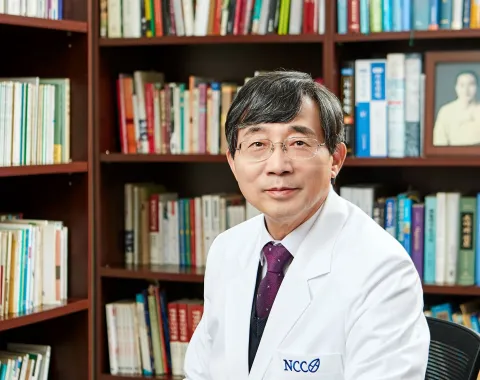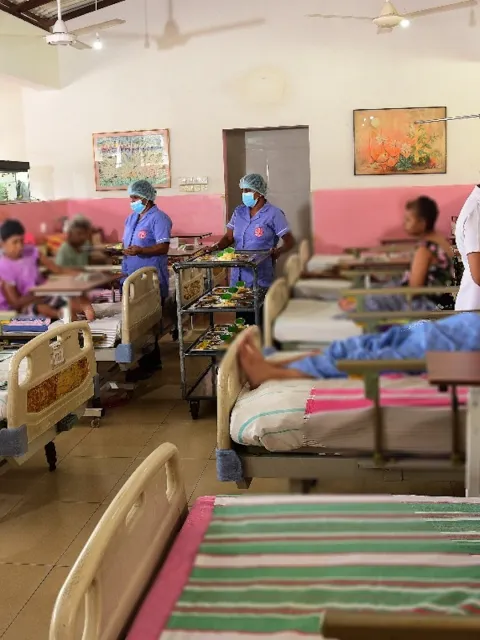NCCK: 20 years of advancing cancer care in the Republic of Korea
On 18th June, the National Cancer Center of Korea (NCCK) marks 20 years of commitment to cancer control in the Republic of Korea and to international collaboration. Interview with Dr Hong Gwan Seo, President of NCCK.

The National Cancer Center of Korea (NCCK) is a longstanding and valued partner of UICC. In addition to advocating to make cancer and non-communicable diseases an integral part of the global health agenda, both organisations share a commitment to build the capacity of health professionals by facilitating the international exchange and development of technical knowledge and skills in all areas of cancer control.
Through the support of UICC’s Technical Fellowship programme, NCCK is funding, hosting and training these international fellows. NCC Korea has also been, a long-lasting and strong supporter of World Cancer Day and a pioneer of its Solidarity Challenge, with active participation across the country and the region.
Interview with Dr Hong Gwan Seo, President of NCC Korea.
What would you say is the overarching ambition and vision of NCC Korea? How does it support the cancer community in the Republic of Korea and beyond?
NCC Korea’s main ambitions are to strengthen its role as a national cancer control institute and expand the reach of its research to include rare cancers, for which treatment is not always easy, and harness new technologies to eradicate cancer in innovative ways. It also aims to continue raising awareness about cancer in local communities, providing them with the most recent information and dispelling myths. Aiming to become known as an international cancer education institution, NCC Korea hopes to nurture and train young cancer professionals who will become future leaders of the global cancer community. Lastly, we aim to maintain our close relationships with international cancer organisations such as UICC, since we believe that international collaboration is essential to conquer cancer.
What role does NCC Korea play within the national health system and what are some of the other services it provides?
NCC Korea consists of a research institute, hospital, national cancer control institute and the Graduate School of Cancer Science and Policy and is the only organisation in the Republic of Korea to cover the whole continuum of cancer control. Research at NCC Korea covers the entire spectrum of cancer control, from prevention and early detection and treatment to palliative care. NCC Korea strives to support people suffering with cancer by introducing policies that include the improvement of cancer patient care. As a public institution designated by the Ministry of Health and Welfare, it establishes and implements the National Cancer Control Plan and publishes national cancer statistics every year. In addition, it has become a hub that collects, manages and analyses national cancer data, and also promotes the importance of cancer prevention and early screening to the public through social media channels.
What role does NCC Korea play in training and building the capacity of health professionals working in oncology?
NCC Korea offers education and training for cancer professionals from both the Republic of Korea and further afield to share knowledge in cancer management, research, and treatment, and as a public medical organisation, it trains public health experts and medical specialists, such as those working in hospices, psycho-oncology, oncology nursing and biostatistics. In order to disseminate knowledge on cancer treatment to local community specialists, NCC Korea provides training courses for medical practitioners who run private clinics in local communities. By developing and hosting specific training courses for medical staff in low and middle-income countries (LMICs), NCC Korea strives to share knowledge in cancer management, aiming to galvanise their efforts to improve cancer control capacities in other countries, and by hosting Fellows from the UICC Technical Fellowships programme it offers cancer professionals the chance to visit NCC Korea and learn new skills in cancer control.
How has NCC Korea had to adapt its services and training in response to the pandemic?
Today, NCC Korea hospital runs almost as smoothly as it did as before the COVID-19 outbreak. Patients and visitors are screened before they enter the hospital, a distance of at least two metres is imposed between people at outpatient waiting rooms and there are separate paths for individuals who are symptomatic. PCR testing prior to regular surgery is mandatory and NCC Korea’s principle is not to delay operations to avoid the possibility of the disease progressing. Furthermore, the Korean government has not restricted its screening programmes in light of social distancing requirements; however, we have observed a decrease of about 8% in screening in 2020 compared to 2019.
International collaborations and onsite fellowship programmes were also disrupted by the pandemic. NCC Korea is resuming its onsite collaborative projects with foreign institutions in the second half of 2021; for instance, “Training of specialists of National Research Oncology Center of the Republic of Kazakhstan” started on 9th June 2021.
Being a WHO Collaborating Centre, NCC Korea has provided online education on cancer registration to specialists from Member States of Western Pacific Region like Laos PDR and Republic of Fiji since 2020.
UICC Technical Fellowships hosted by NCC Korea also began this year. A first Fellow from the Cancer Institute and Hospital Chinese Academy of Medical Sciences (CICAMS, NCC China) was recently selected as a Technical Fellow and his month-long project at NCC Korea will start in September 2021 in NCCK's National Cancer Center Graduate School of Cancer Science and Policy (NCC-GCSP) P, with tailored training on the “Implication of risk prediction model and risk-adapted screening in colorectal cancer prevention”.
Why you were interested in supporting the UICC Technical Fellowships programme and how does this complement NCC Korea’s vision and its training programmes?
For the last 20 years, NCC Korea has been performing ground-breaking cancer research and working in national cancer control in South Korea. As an active partner of UICC, we are committed to contributing to the UICC Technical Fellowship Programme to strengthen the capacity of cancer professionals from other countries. NCC Korea covers all aspects of cancer control included in the ‘public health’, ‘research’ and ‘clinical’ Technical fellowship categories.
Since the outbreak of COVID-19 over the world, the opportunities for face-to-face meetings and collaborative activities have significantly reduced, with many being replaced by virtual ones. NCC Korea also supports UICC Virtual Fellowships so that health professionals working at UICC member organisations can gain knowledge in cancer control through virtual knowledge and best practice sharing.
Who are the Technical Fellows who will visit NCC Korea in the coming months as part of the Technical Fellowships programme and what will they do?
Since 2019, UICC and NCCK have actively collaborated on the Technical Fellowships, with the aim of providing short-term, high quality and tailored training to cancer professionals from Asian National Cancer Center Alliance (ANCCA) countries (Bangladesh, China, Indonesia, India, Japan, Korea, Malaysia, Mongolia, Nepal, Pakistan, Singapore, Thailand, Turkey, Vietnam, and Brunei) in addition to those from African countries.
The COVID-19 pandemic halted the progress of this programme in 2020. Fortunately, however, it has now re-opened for applicants, with a maximum of seven Fellows due to be hosted by the NCC-GCSP and National Cancer Center Hospital in 2021 and early 2022.
Concluding question: What are some of NCC Korea’s ambitions for the future?
With our warmest heart, NCC Korea will continue to pursue and develop relationships with other organisations sharing the common goal of conquering cancer. We will maintain our support of LMICs in terms of developing their national cancer control plans and will strive to become a leading institution in cancer research and education. To this end, NCC Korea would like to strengthen its links with international cancer organisations including UICC members to jointly respond to universal health issues through collaborative research, projects & campaigns. Lastly, by expanding our training courses for international cancer professionals, we aim to become a global cancer education institution.
Last update
Thursday 24 June 2021
